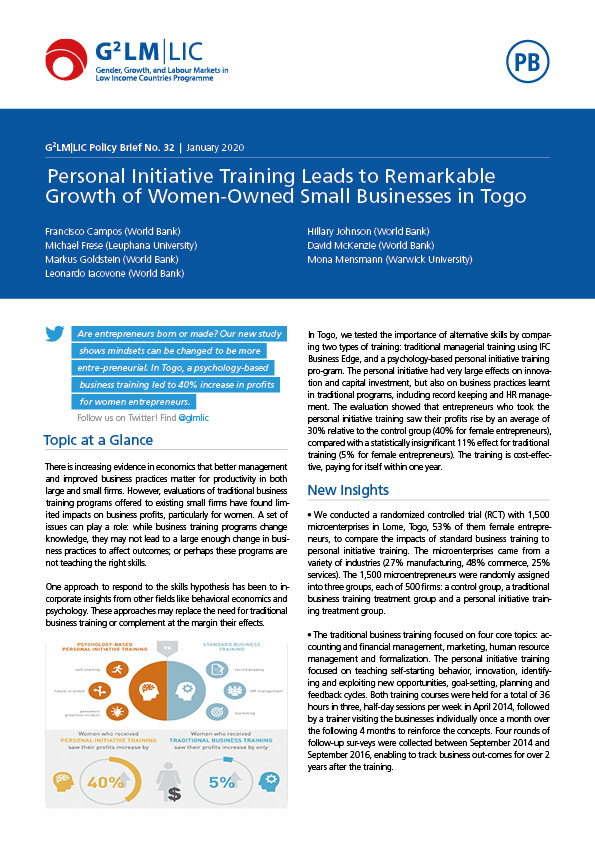There is increasing evidence in economics that better management and improved business practices matter for productivity in both large and small firms. However, evaluations of traditional business training programs offered to existing small firms have found limited impacts on business profits, particularly for women. A set of issues can play a role: while business training programs change knowledge, they may not lead to a large enough change in business practices to affect outcomes; or perhaps these programs are not teaching the right skills.
One approach to respond to the skills hypothesis has been to incorporate insights from other fields like behavioral economics and psychology. These approaches may replace the need for traditional business training or complement at the margin their effects.
In Togo, we tested the importance of alternative skills by comparing two types of training: traditional managerial training using IFC Business Edge, and a psychology-based personal initiative training pro-gram. The personal initiative had very large effects on innovation and capital investment, but also on business practices learnt in traditional programs, including record keeping and HR management. The evaluation showed that entrepreneurs who took the personal initiative training saw their profits rise by an average of 30% relative to the control group (40% for female entrepreneurs), compared with a statistically insignificant 11% effect for traditional training (5% for female entrepreneurs). The training is cost-effective, paying for itself within one year.
